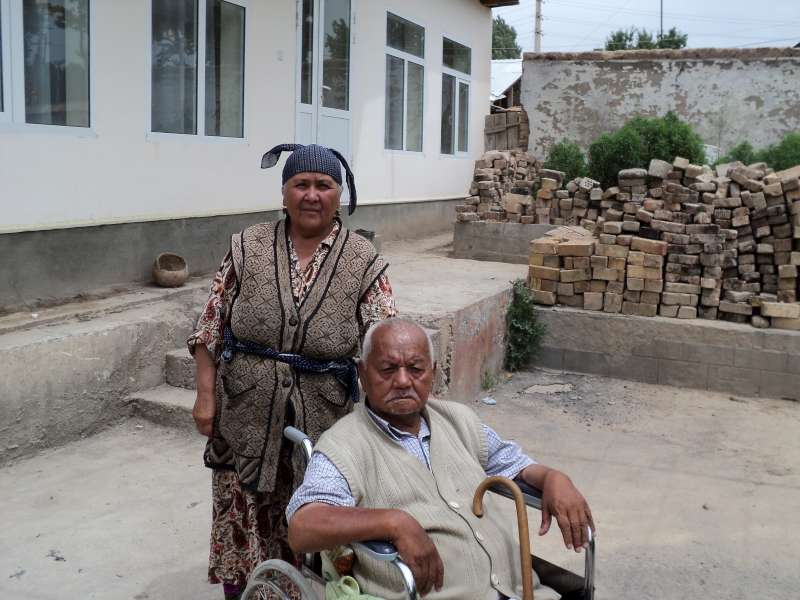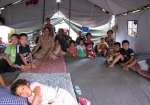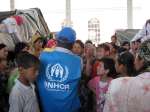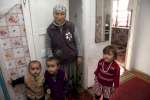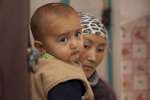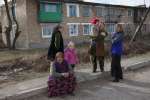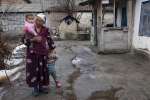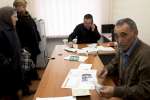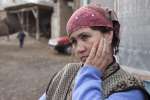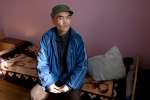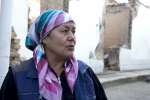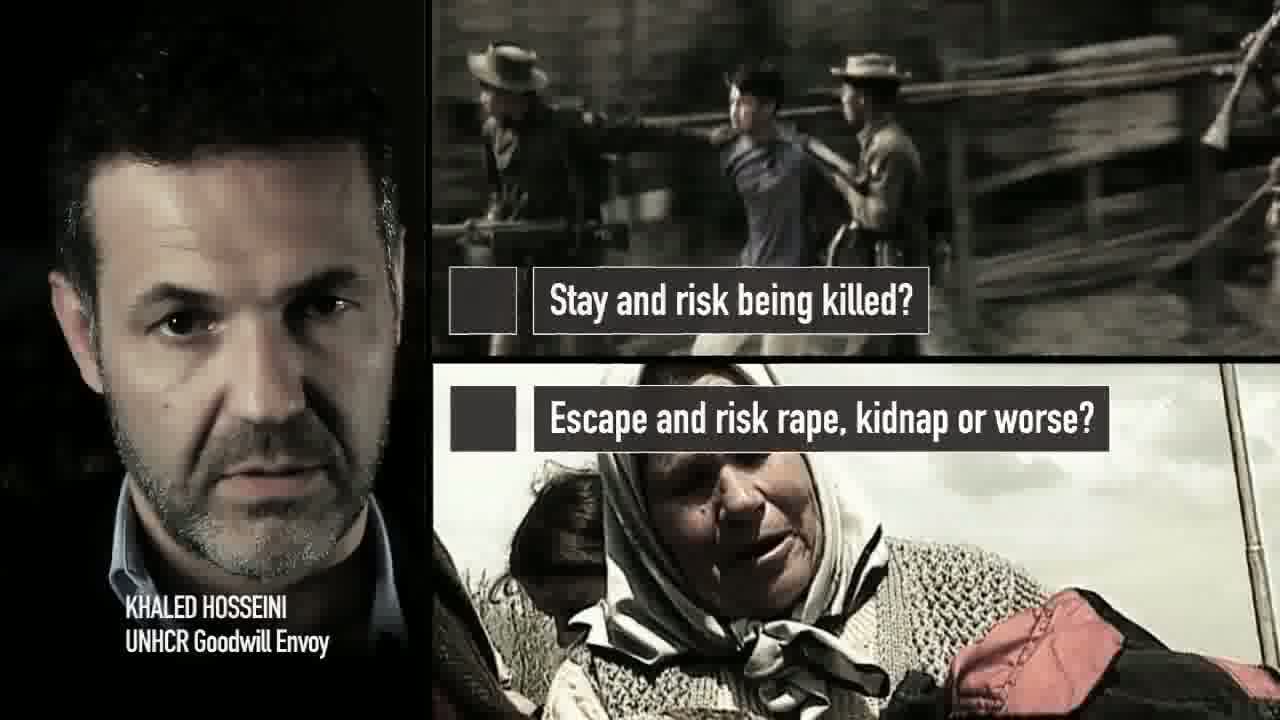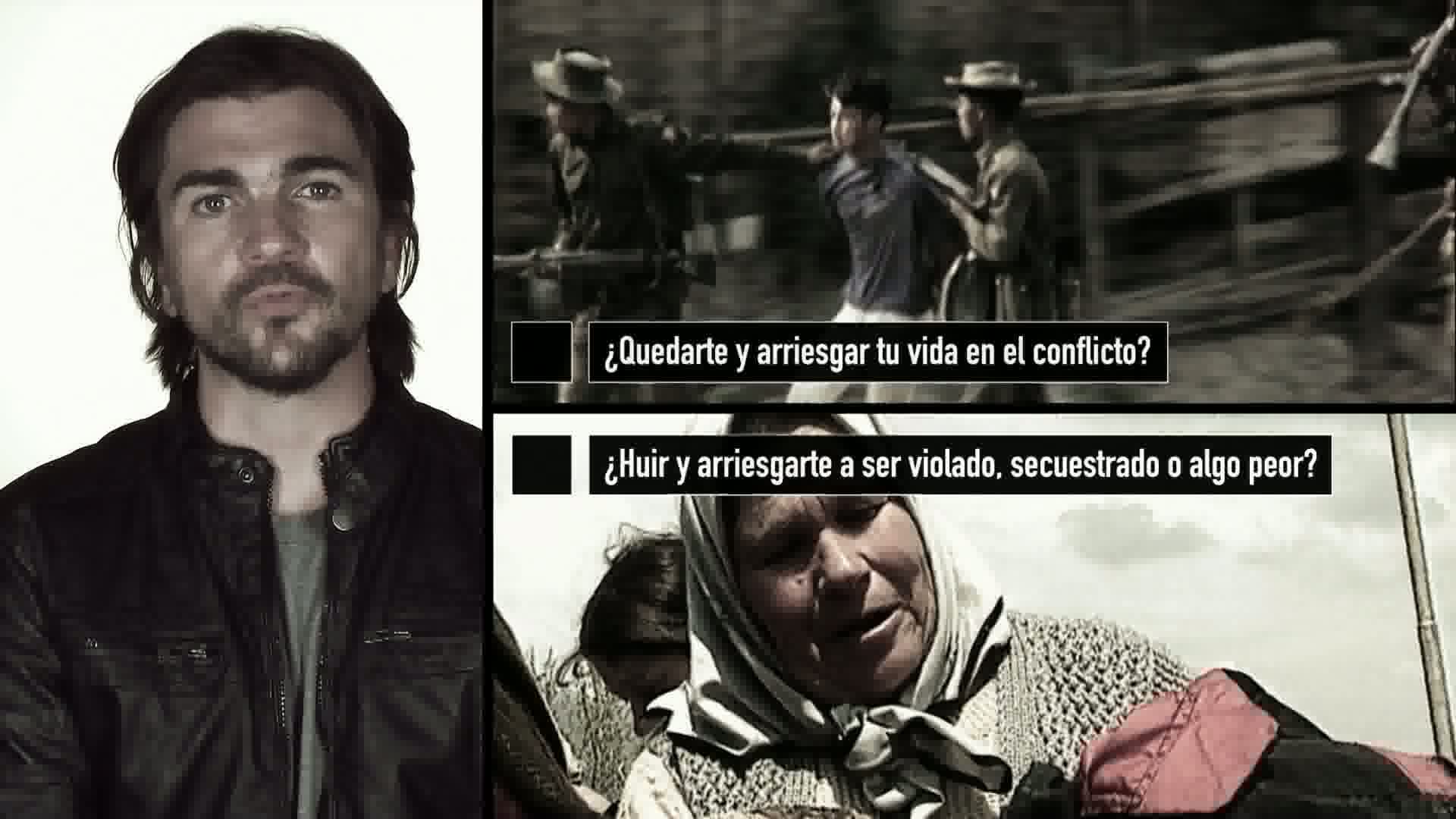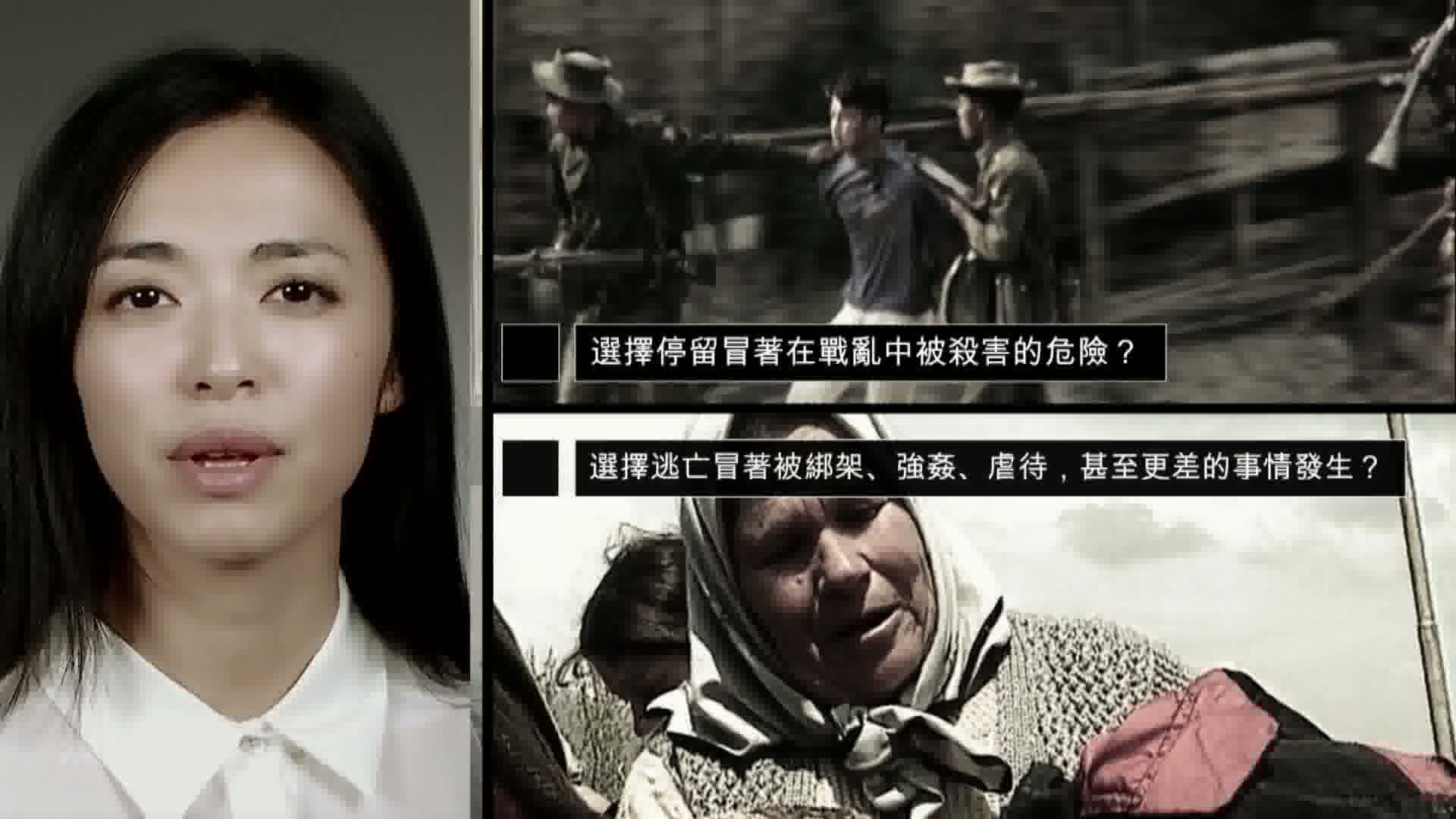- Text size
 |
|  |
|  |
| 
- Français
UNHCR calls for confidence-building to sustain returns to south Kyrgyzstan
News Stories, 10 June 2011
OSH, Kyrgyzstan, June 10 (UNHCR) – A year after violence erupted in southern Kyrgyzstan, tens of thousands of people are still unable to go home. The UN refugee agency has called for more confidence-building efforts to ensure sustainable returns and genuine reconciliation.
Between June 10 and 14 last year, communal clashes mainly in the southern cities of Osh and Jalalabad left more than 400 people dead. Some 375,000 others were forced to flee amid widespread destruction and looting of homes. About 75,000 people crossed the border into Uzbekistan while 300,000 were displaced within Kyrgyzstan.
Most of them were able to return to their home areas shortly after. UNHCR mobilized emergency assistance and within 100 days, helped to build emergency transitional shelter for more than 13,400 people whose homes were destroyed. The agency also distributed tons of coal, warm clothing and relief items to 21,000 people to help them through six months of winter.
However, some 60,000 people are still displaced today across the country and abroad. Another 20,000 people are living with host families. Some say they cannot return because of continuing problems such as damaged property, security concerns and a lack of job opportunities.
"One year has passed but it is still too early to talk about stability," said one man, age 39. "We still do not let our children play alone in the streets and we accompany them everywhere."
One woman, 42, lamented that the number of factories in Jalalabad has dwindled to one. "There should be work for all, so that people would not have to leave their families and go to Russia to earn money," she said. "We [the different communities] should work together in the same factories. Only by being together and working shoulder to shoulder can we regain that trust and understand each other better."
UNHCR teams are working in 50 locations across Osh and Jalalabad to monitor the situation, and to discuss and seek solutions for emerging issues with the communities and authorities. The agency runs a round-the-clock toll-free hotline that receives about 100 calls a week. The most common topics involve the delivery of assistance, counselling about property and legal rights, access to public services, security, and how to restore businesses and employment.
UNHCR and its partners are currently assisting some 280,000 affected people in Osh and Jalalabad. This includes funding mobile teams to help them restore identity and property documents that were lost or damaged in last year's violence. People from different communities are working and learning side by side in quick impact projects to rehabilitate small infrastructure, generate income and build peace.
The UN refugee agency is now focused on meeting the legal and socio-economic needs of affected people, with special attention to the most vulnerable. It believes there is a need to restore communication and rebuild confidence between communities and authorities to facilitate reconciliation and lasting peace.
Out of the US$11.4 million UNHCR needs to run projects in Kyrgyzstan this year, it has received just over half and is facing a shortfall of $5.4 million.
By Natalia Prokopchuk and Dania Gaisina in Osh, Kyrgyzstan
